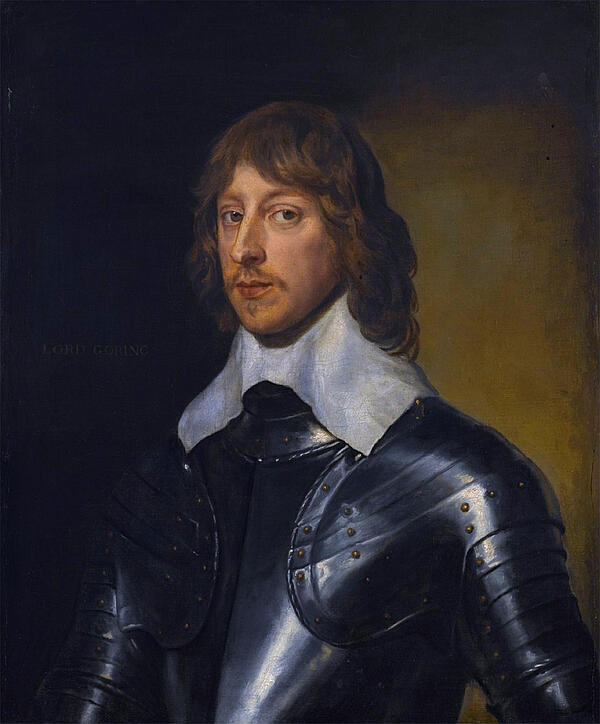Lord George Goring
Baron George Goring, later taking the title of the first Earl of Norwich, was a senior Royalist commander during the English Civil War. At the Battle of Marston Moor in 1644, Goring led the Royalist horse in a devastating charge that scattered Fairfax’s cavalry. Although the battle was lost, Goring gained a reputation as a highly skilled leader.
Born in 1608,, Goring developed a reputation as a gambler from an early age. But he also proved himself as a skilled soldier when fighting for the Dutch in Flanders. He was permanently lamed by a wound received at Breda in 1637, and returned to England early in 1639, when he was made governor of Portsmouth
Goring tried to appease both sides in the run up to the civil war. Although he told the Commons that he was loyal to them, he also made Portsmouth a base for Charles I. He was so impressive in the Commons that senior members of Parliament wanted to appoint him a senior role. Eventually however, Charles declared his loyalty to the king.

An a cavalry commander, Goring inspired he often crossed the line from bravery to recklessness.
Fairfax captured Goring in Wakefield in 1643, but he was released the next year as an exchange for Parliamentarian prisoners. He went on to command a cavalry unit at Marston Moor. Goring’s men defeated Sir Thomas Fairfax’s horsemen at the beginning of the battle,. However, Goring was outmatched by Oliver Cromwell.
Despite the Royalist defeat, Goring’s reputation as a skilled leader soared following the battle. In October 1644, he fought honourably at Newbury, but he became progressively more difficult to work with.
After Naseby, it was rumoured that Goring's periods of drunkenness became more frequent, and his troops – already infamously known as "Goring's Crew" – became even more unruly and undisciplined.
In November 1645, Goring fell ill and he returned to France. He was never to return to England. In 1646, Goring served the Spanish is the Neverlands. He died penniless in Madrid in 1657, aged 49.
See also: The Second Battle of Newbury
MLA Citation/Reference
"Lord George Goring". HistoryLearning.com. 2026. Web.
